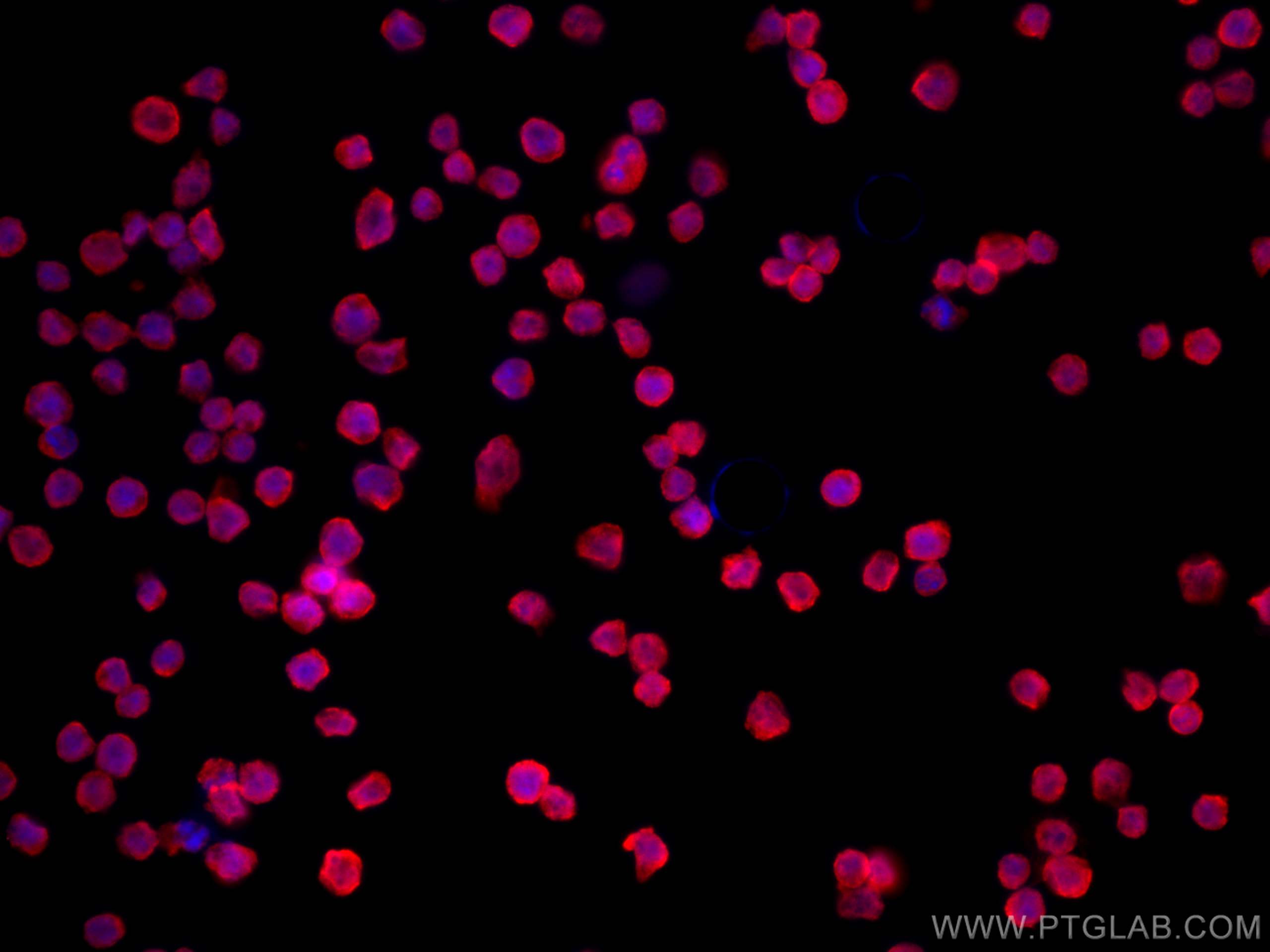Validation Data Gallery
Tested Applications
| Positive IF/ICC detected in | Daudi cells |
Recommended dilution
| Application | Dilution |
|---|---|
| Immunofluorescence (IF)/ICC | IF/ICC : 1:50-1:500 |
| It is recommended that this reagent should be titrated in each testing system to obtain optimal results. | |
| Sample-dependent, Check data in validation data gallery. | |
Product Information
CL594-67627 targets CD24 in IF/ICC applications and shows reactivity with human samples.
| Tested Reactivity | human |
| Host / Isotype | Mouse / IgG1 |
| Class | Monoclonal |
| Type | Antibody |
| Immunogen | CD24 fusion protein Ag11679 相同性解析による交差性が予測される生物種 |
| Full Name | CD24 molecule |
| Calculated molecular weight | 8 kDa |
| Observed molecular weight | 42 kDa |
| GenBank accession number | BC007674 |
| Gene Symbol | CD24 |
| Gene ID (NCBI) | 100133941 |
| RRID | AB_2920165 |
| Conjugate | CoraLite®594 Fluorescent Dye |
| Excitation/Emission maxima wavelengths | 588 nm / 604 nm |
| Form | Liquid |
| Purification Method | Protein G purification |
| UNIPROT ID | P25063 |
| Storage Buffer | PBS with 50% glycerol, 0.05% Proclin300, 0.5% BSA{{ptg:BufferTemp}}7.3 |
| Storage Conditions | Store at -20°C. Avoid exposure to light. Stable for one year after shipment. Aliquoting is unnecessary for -20oC storage. |
Background Information
CD24 (known as heat stable antigen) is a small highly glycosylated GPI-linked sialoprotein. It is normally expressed at the surface of most B lymphocytes and differentiating neuroblasts, and it is also up-regulated in a wide variety of cancers. Studies have shown that CD24 functions in the regulation of B-cell apoptosis, leukocyte signal transduction, and leukocyte adhesion. Since it is highly glycosylated, the apparent molecular weight of CD24 could be variable, ranging from 30 kDa to 70 kDa. (Ref: Akihiko Sano, MD., 2009)
Protocols
| Product Specific Protocols | |
|---|---|
| IF protocol for CL594 CD24 antibody CL594-67627 | Download protocol |
| Standard Protocols | |
|---|---|
| Click here to view our Standard Protocols |
